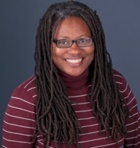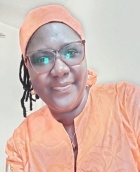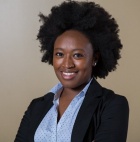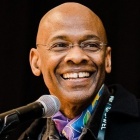RLL announces Spring 2022 Black History Month programming
February 23, 2022

Cécile Accilien
Professor and Chair, Department of Interdisciplinary Studies
Kennesaw State University, Kennesaw, GA
1. 11 am-12 noon EST
Studying Haiti in the French-Language Classroom
Inspired by Dr. Accilien’s forthcoming book, The Antiracist World Language Classroom, this event will provide both discussion and practice for work at the undergraduate level. The discussion will focus on some of the ways and reasons to study Haiti through intersectional lenses in the French-language classroom. It will consider the tension and co-existence of French and Haitian Creole in Haiti, as well as the ways in which colonialism and inclusion policies play into the division between the two languages in Haiti and around the world. Dr. Accilien will also have an interactive exercise to engage students in considering experiences of intersectionality and practices of inclusion. This session will be held during the course meeting time of Intermediate French 2, but all students of all levels and guests are welcome.
Register in advance for this event: https://buffalo.zoom.us/meeting/register/tJAtdumtpz4iHNOapxZBtoxjY8F90ZvV2bQN
2. 2:30 pm-4:00 pm EST
Teaching Haiti: Strategies for Creating New Narratives
This presentation will highlight some of the stereotypes that instructors who teach about Haiti fall into, and provide critical problem-solving tools for avoiding such pitfalls. Based on Dr. Accilien’s collaborative work in Teaching Haiti: Strategies for Creating New Narratives (U Florida P, 2021), the presentation will also examine the connection between Haiti, France and the U.S., and the role these actors play in continuing the single and often stifling narrative of Haiti.
Link to the recording of this event: https://ub.hosted.panopto.com/Panopto/Pages/Viewer.aspx?id=43b9d248-3476-4cb3-982a-ae840142fd9c&start=0
Cécile Accilien is professor and chair in the Interdisciplinary Studies Department at Kennesaw State University in Kennesaw, Georgia. She is the author of several books and articles that focus on Caribbean and African cultures. She has written for Truthout and Latin American Commentator. She is the chair of the Editorial Board for the journal Women, Gender and Families of Color. She is also the vice-president of the Haitian Studies Association.
Sponsored by the Department of Romance Languages and Literatures and the CAS Office of Diversity Inclusion
February 25, 2022

10 am-12 noon EST
Sociolinguistic dynamics of the uses of Creole in Ziguinchor
Ndiémé Sow
Associate Professor
University of Assane Seck, Ziguinchor
Sponsored by the Department of Romance Languages and Literatures, the Department of Linguistics, and the CAS Office of Inclusive Excellence
Register in advance for this meeting: https://buffalo.zoom.us/meeting/register/tJcld-uqqTkvGNUvEPvc261byFMakytetutM
After registering, you will receive a confirmation email containing information about joining the meeting.
Urban multilingualism in Ziguinchor has considerably evolved since the 1970s, while Creole spoken by the Christian families of Santiaba, was a prestigious language, desirable and adopted by the populations who came into contact with this social elite (Moreau 1994, Juillard 1995). Many demographic and social changes led to the disaffection of Creole. Yet this language is still noted in the repertoire of many Ziguinchor native over the age of fifty. Its use has shrunk, faced with the significant breakthrough of Wolof since the 1980s. Some recent observations indicate that Creole is being spoken again in the central market, with new uses and new functions. The Creole spoken today in Ziguinchor cannot be dissociated from the languages of contact, both in the directories of users and in the interactions in which it appears (Nunes 2015). Using historical approaches (Rougé 1988, Moreau 1994) and a longitudinal perspective Prof. Sow examines the evolution of the functions, the uses of Creole in two Creole-speaking districts of the city (Santiaba and Tilène), since the 1980s and will focus on what it still means to speak Creole in different multilingual environments.
Ndiémé Sow is a sociolinguist and lecturer at Assane SECK University. She is a researcher at the Center for Interdisciplinary Research on Languages, Literatures, Arts and Cultures. She is particularly interested in interactional dynamics among young people and in the relationships between mobility, sociolinguistic spaces, education and plurilingual practices. Currently Prof. Sow works on linguistic diversity in border areas, and also directs a project on the relations between migratory dynamics and socio-linguistic diversity.
February 28 2022

10 am-12pm EST
Complicating Identity Categories in Sociolinguistics
Sharese King
Assistant Professor
Department of Linguistics
University of Chicago
Sponsored by the Department of Romance Languages and Literatures, the Department of Linguistics, and the CAS Office of Diversity Inclusion
Register in advance for this meeting:
https://buffalo.zoom.us/meeting/register/tJwvceiqrTMiHt2p0pkLtC9KoK5d-ZdCt0Ja
After registering, you will receive a confirmation email containing information about joining the meeting.
Prof. King discusses why exploring intersectionality in sociolinguistics is vital for advancing both theory and social justice efforts (King 2020). The term intersectionality was coined by legal scholar, Kimberle Crenshaw, to account for the discrimination Black women faced at the intersection of both race and gender (Crenshaw 1989). Since, scholars across disciplines, including linguistics, have drawn on the theory to account for the complexity of identity, recognizing that dimensions of identity co-occur and co-constitute one another, with one informing the other (Levon 2015). Drawing on previous work from Rochester, NY, Prof. King proposes ways to operationalize this social theory into variationist analyses, providing a framework for studying multidimensionality.
Sharese King is a sociolinguist interested in the relationship between race, place, and language variation. She explores how African Americans use language to construct multidimensional identities and how these constructions are perceived and evaluated across different listener populations.
March 4, 2022

10 am-12 pm EST
From doll test to language test: Language, education and human rights in the 21st century
Michel Degraff
Professor of Linguistics
Department of Linguistics and Philosophy
Massachusetts Institute of Technology
Sponsored by the Department of Romance Languages and Literatures, the Department of Linguistics, and the CAS Office of Diversity Inclusion
Register in advance for this meeting:
https://buffalo.zoom.us/meeting/register/tJUkceqprzgrHd3lbUlzwzfvMtBAo7deN_Je
After registering, you will receive a confirmation email containing information about joining the meeting.
Prof. Degraff will invite participants to explore the impact of colonization and slavery on contemporary hierarchies of languages in the Global South, including his native Haiti and most everywhere else in the Creole-speaking Caribbean and beyond. Then he will consider what sorts of "direct action" linguists can take to help break these mental chains and work toward making the world a better place for all — a world where #BlackLivesMatter, thus #OurLanguagesMatter... #ToutMounSeMoun —> #ToutLangSeLang.
Michel Degraff is Director of the MIT-Haiti Initiative, a project for the development, evaluation and dissemination of active-learning resources in Kreyòl to help improve Science, Technology, Engineering and Math (STEM) education plus leadership and management in Haiti. He is also Founding Member of Akademi Kreyòl Ayisyen. Prof. Degraff's research interests include syntax, morphology, language change, and language and education.